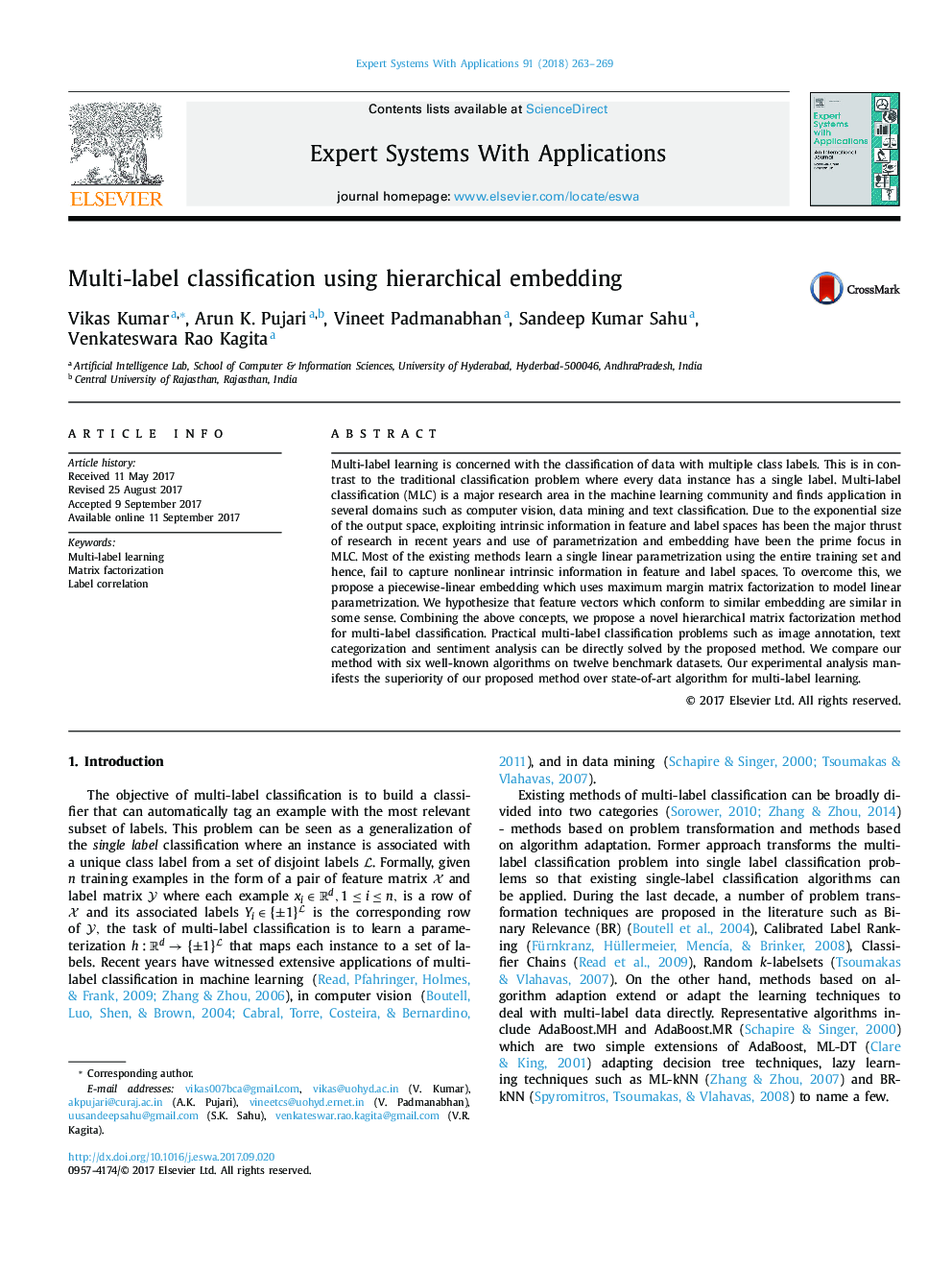| Article ID | Journal | Published Year | Pages | File Type |
|---|---|---|---|---|
| 4942932 | Expert Systems with Applications | 2018 | 7 Pages |
â¢Multi-label learning deals with the classification of data with multiple labels.â¢Output space with many labels is tackle by modeling inter-label correlations.â¢Use of parametrization and embedding have been the prime focus.â¢A piecewise-linear embedding using maximum margin matrix factorization is proposed.â¢Our experimental analysis manifests the superiority of our proposed method.
Multi-label learning is concerned with the classification of data with multiple class labels. This is in contrast to the traditional classification problem where every data instance has a single label. Multi-label classification (MLC) is a major research area in the machine learning community and finds application in several domains such as computer vision, data mining and text classification. Due to the exponential size of the output space, exploiting intrinsic information in feature and label spaces has been the major thrust of research in recent years and use of parametrization and embedding have been the prime focus in MLC. Most of the existing methods learn a single linear parametrization using the entire training set and hence, fail to capture nonlinear intrinsic information in feature and label spaces. To overcome this, we propose a piecewise-linear embedding which uses maximum margin matrix factorization to model linear parametrization. We hypothesize that feature vectors which conform to similar embedding are similar in some sense. Combining the above concepts, we propose a novel hierarchical matrix factorization method for multi-label classification. Practical multi-label classification problems such as image annotation, text categorization and sentiment analysis can be directly solved by the proposed method. We compare our method with six well-known algorithms on twelve benchmark datasets. Our experimental analysis manifests the superiority of our proposed method over state-of-art algorithm for multi-label learning.
